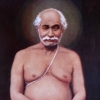Sign in to follow this
Followers
0

Western medicine - what doesn't it know about energy?
By
SecretGrotto, in General Discussion

By
SecretGrotto, in General Discussion